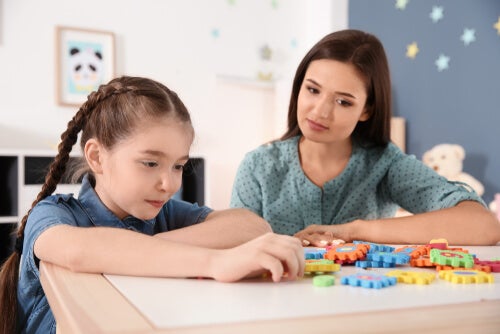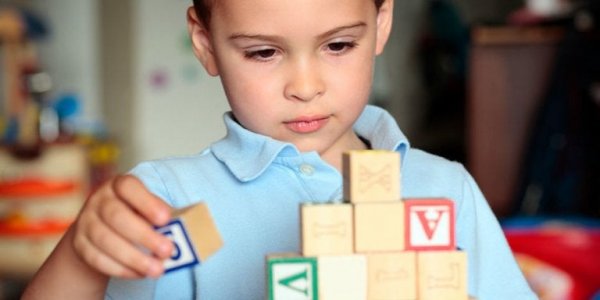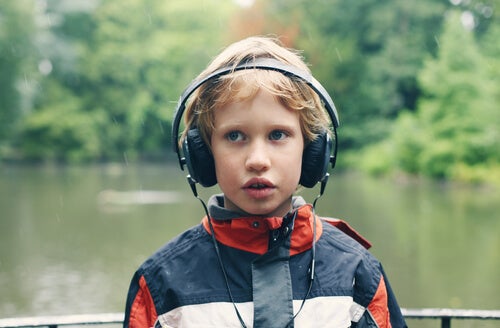Seven Keys to Help Children with Autism during the Coronavirus Crisis


Written and verified by the psychologist Valeria Sabater
They’ve lost their routines. They’ve been torn away from their normality, from those guidelines that they followed each day, which gave them security, meaning, peace, and even joy. Helping children with autism during the coronavirus crisis is another priority that we should keep very much in mind. Today, many families are facing serious problems with this new situation.
Anyone who hasn’t experienced firsthand the life of a parent or even a teacher working with people on the autism spectrum won’t understand what a change like this means for them.
It’s clear that we’re all suffering the effects of these circumstances. We’ve all put plans, tasks, habits and even jobs on hold. However, you can see and hear the frustration of children, teenagers, or adults who have autism spectrum disorder (ASD).
Some will persistently exhibit repetitive movements and behaviors. Others may behave aggressively. The vast majority resort to silence or even crying. If they communicated little before, now they’ll be saying even less. They’re lost in new routines that they don’t understand.
Therefore, it’s necessary for society to be more sensitive to this group and to provide help and resources.

Seven strategies to help children with autism during the coronavirus crisis
In Spain, for example, the Ministry of Health has authorized people with autism to go out in the company of a family member. They should do so with the appropriate safety measures and with certificates attesting to their disability.
These daily walks are a breath of fresh air for them and something that must be respected. Sadly, and although it may surprise us, many people shout at them from their balconies when they see them out and about.
This concession is an unavoidable necessity for these children and adolescents. We mustn’t forget that this group is no longer going to therapy sessions and that their needs are no longer being met.
Many people with autism spectrum disorder are showing serious problems adapting. This is so serious is that this can endanger their families.
Emotions and frustration build up like a time bomb and can turn into very problematic behavior. They can become aggressive or self-injurious. Although most fall into disruptive and repetitive behavior, they also develop echolalia, repeating the same phrases over and over again.
To help children with autism during the coronavirus crisis, you’ll need to take a series of strategies into account. These are just some examples.
1. Clarify their routines through drawings and cards
Children and adolescents with ASD must adapt to new routines. So that they can understand them, we can use drawings, which will specify which activity is being carried out at any given moment.
We need to give them clear, simple, and positive instructions from the moment they get up. We can create a visual schedule and post it on the wall for them to keep in mind.
2. Dress as if they were going to class
One way to maintain “normalcy” is by allowing the child to dress as if they were going to class. Avoid being in pajamas all day. It’s also essential that they follow the same schoolwork routine.
3. Devote time to the child’s particular interests
Most children, whether autistic or neurotypical, often have a special interest that isn’t always related to a specific school subject.
Many love drawing, animals, music, space, and movies, among other things. We must be creative in inventing games or projects that will keep them focused on that particular hobby.

4. Simple and motivating daily exercise
One of the keys to helping children with autism during the coronavirus crisis is to encourage their movement and physical exercise. It’s true that these boys and girls have a lack of motor coordination and are usually arrhythmic but they should move and stay active.
You can find fun dances on YouTube, as well as simple exercises that will encourage movement and positive emotions.
5. Emotion cards to communicate how they’re feeling
Another exceptional resource in this context is to use “emotion cards”. It’s just a matter of creating drawings in which different faces express feelings such as sadness, anger, happiness, and boredom, among others.
Throughout the day, people with an autism spectrum disorder may experience feelings and sensations that they can’t communicate. Experts recommend that they have resources to be able to do so to show their family members how they’re feeling.
6. Reduce exposure to images and information about the pandemic
As far as possible, they shouldn’t be exposed to all the latest information about the pandemic. Opt for movies and for time spent on leisure activities.
Children with ASD are very sensitive and may internalize their fear and distress. The idea that their grandparents are going to die or that mom and dad are going to get sick can really lodge in their minds and unsettle them. Thus, control what they’re watching at all times.

7. Remote support
To help children with autism during the coronavirus crisis, families can’t be left alone. They must have support from a distance, either with psychologists via video calls or with therapists who come to the house to accompany the children on outings.
Families should also be in contact with other families in the same situation. The support network between parents with children with ASD is always helpful. Ideas flow and they encourage them and share their emotions, problems, questions, and hopes.
Let’s take all this into account. Let’s be more sensitive towards these children and teenagers and build bridges to help them.
This text is provided for informational purposes only and does not replace consultation with a professional. If in doubt, consult your specialist.








